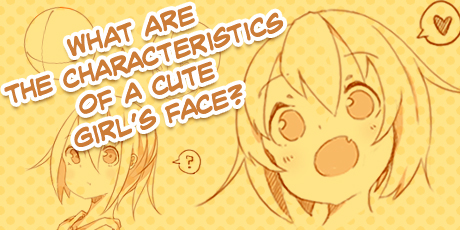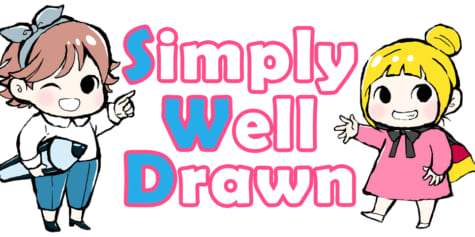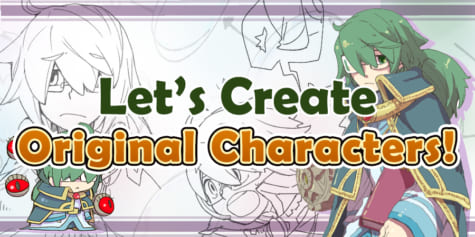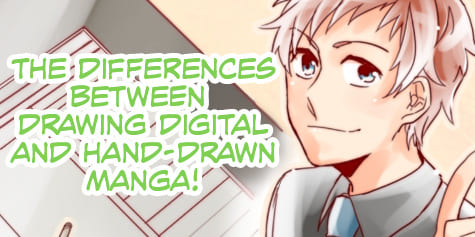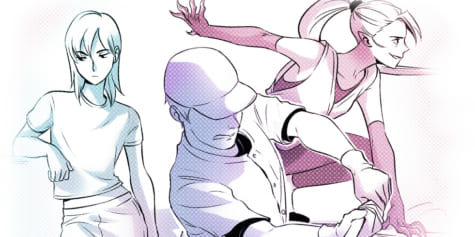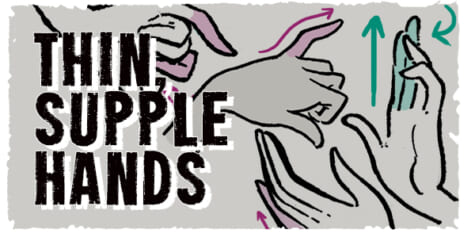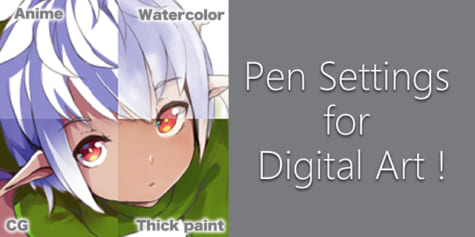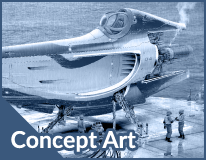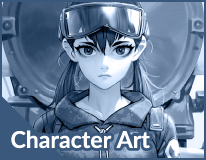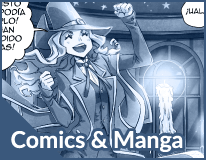Easy Steps to Creating Chibi Characters
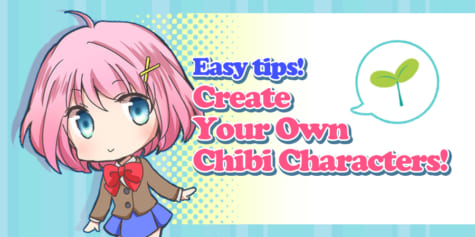
Have you ever drawn stylized mini versions (“chibis”) of your characters? Small and cute chibis are great for illustrations or for printing on keyrings and other accessories. In this tutorial, I’ll show you some tips for drawing chibi characters and preparing the image file for printing as keyrings or other items.
Index
What’s a Chibi?
A chibi is a form of stylized character drawing that originates in Japan. Chibi characters are usually between two and four heads tall.
They are often used on merchandise for popular anime series. With huge, distinct facial expressions, they are also useful when good at creating a fun or cute atmosphere.
In this tutorial, I will teach you how to draw chibi characters.
Once you know how to draw chibis, you may find it much easier to draw these cute characters compared to typically proportioned characters.
Notes for Drawing Chibi Characters
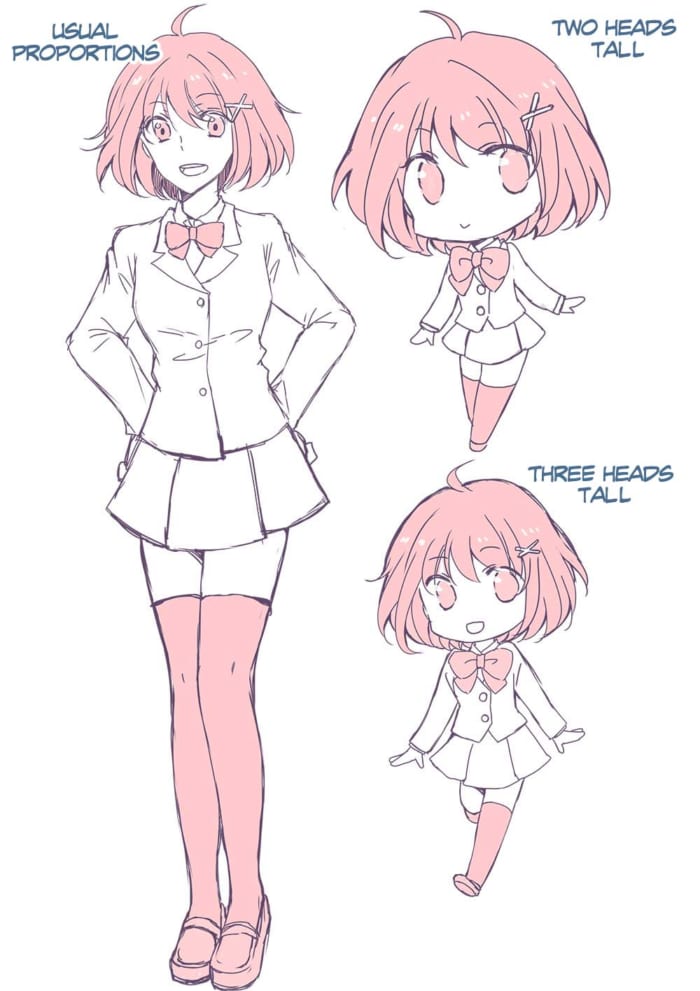
● Chibis have uniform size and shape
Most chibi characters are around the same size and body shape, regardless of the gender, face size, height, body shape, and age of the original design.
In other words, a six-head-tall girl and an eight-head-tall man would have the same body shape as a two- to three-head-tall chibi character.
If you learn the main points of drawing chibis, you can create any character in this style.
● Find points that make the characters stand out
Even though chibi characters have the same basic body shape, you need to find a way to differentiate between multiple characters.
You can bring out the character’s personality by emphasizing the essential features of each character. In particular, the eyes, hairstyle, and clothing.
●Focus on balance
Chibi characters can be anywhere from two to four heads tall, but I’ll use two-head-tall chibis for these examples.
There isn’t a rule on the proportions, and people will have different preferences on how they draw chibis. To start with, try to learn how to draw one particular proportion.
Once you learn how to draw a chibi, you can apply the same principles to versions with slightly different body proportions.
There are a few differences based on the proportions, which we’ll cover in the body section later.
Drawing the head
● The head is a sphere, not a circle
The first step of a chibi character is the head.
When drawing a chibi character, focus on the overall roundness and remember that the head is spherical.
Most people think of chibis as a 2D stylization. But actually, there are many chibi anime dolls as well, such as “Nendoroid” from Good Smile Company, Inc. Try to think of your chibi character in a 3D space.
The head is round and large compared to the body.
….In fact, so big that I’m not sure how the head is supported!
A chibi character with a sense of depth will appear much cuter, so keep the 3D space in mind as you draw.
●Drawing the head (two-head-tall version)
1. Draw a circle
First, draw the rough outline as a circle.
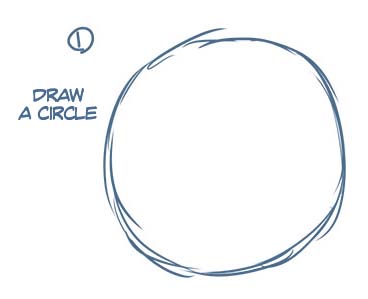
2. Draw along the circle
Draw the outline of the head around the circle.
One feature that differentiates a chibi from a typical human is the lack of sharp edges around the jawline. I mentioned earlier that you should focus on the roundness, as most parts of chibi character are soft and round. I replace the sharp jawline with a smooth curve.
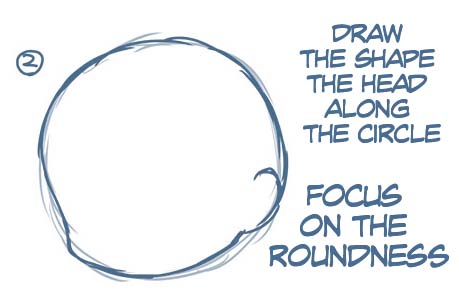
3. Draw guides
Draw guide lines for placing the eyes and mouth.
As I mentioned earlier, since the head is a sphere, draw the guide following the shape of a ball instead of flat paper. (You can imagine the curve of the latitude and longitude lines of the earth as an example of this.) The eyes of a chibi are quite large, so place the horizontal line for the eyes slightly lower.
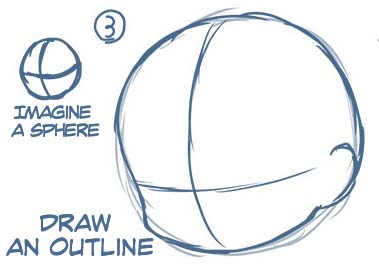
4. Draw the eyes and mouth
Draw the character’s eyes and mouth. The eyes of a chibi express the most emotion, so draw them very large.
For some comical expressions, the eyes are drawn only with straight lines.
The mouth is small, and you can often omit drawing the nose. You can also use a small dot to represent the nose.
Since I will change all sharp edges into a curve, I omit sharp parts such as the nose.
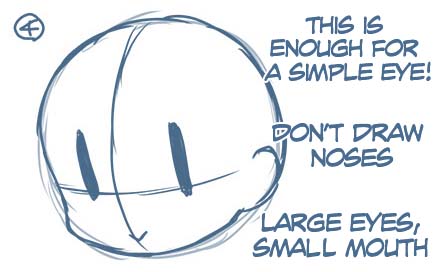
5. Draw details of the eyes
Make the eyes neater and add some more detail compared to the previous simple eyes.
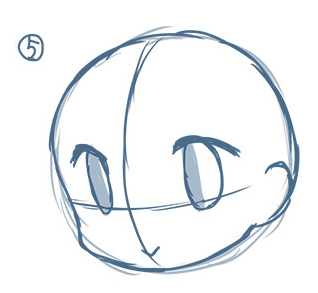
6. Draw the hair
Draw some hair for your chibi. First, draw a voluminous shape of the hair around the outline of the head.
It’s a good idea to use a simplified hairstyle compared to the regular-sized character. Use soft tips for the ends of the hair.
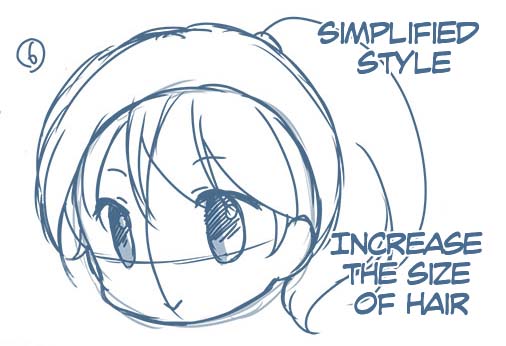
Now the head is finished.
Compared to a regular face, keep the lines as simple as possible.
The key to creating a chibi character is to reduce information while leaving the key features.
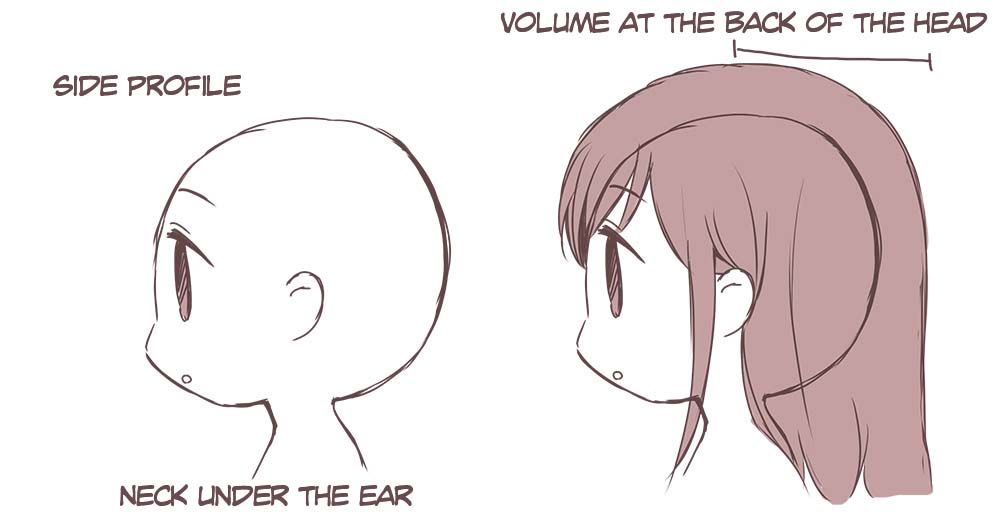
When drawing the side profile, keep in mind the spherical shape of the back of the head.
The position of the neck is slightly tricky when drawing a side profile. You can place the neck under the ear.
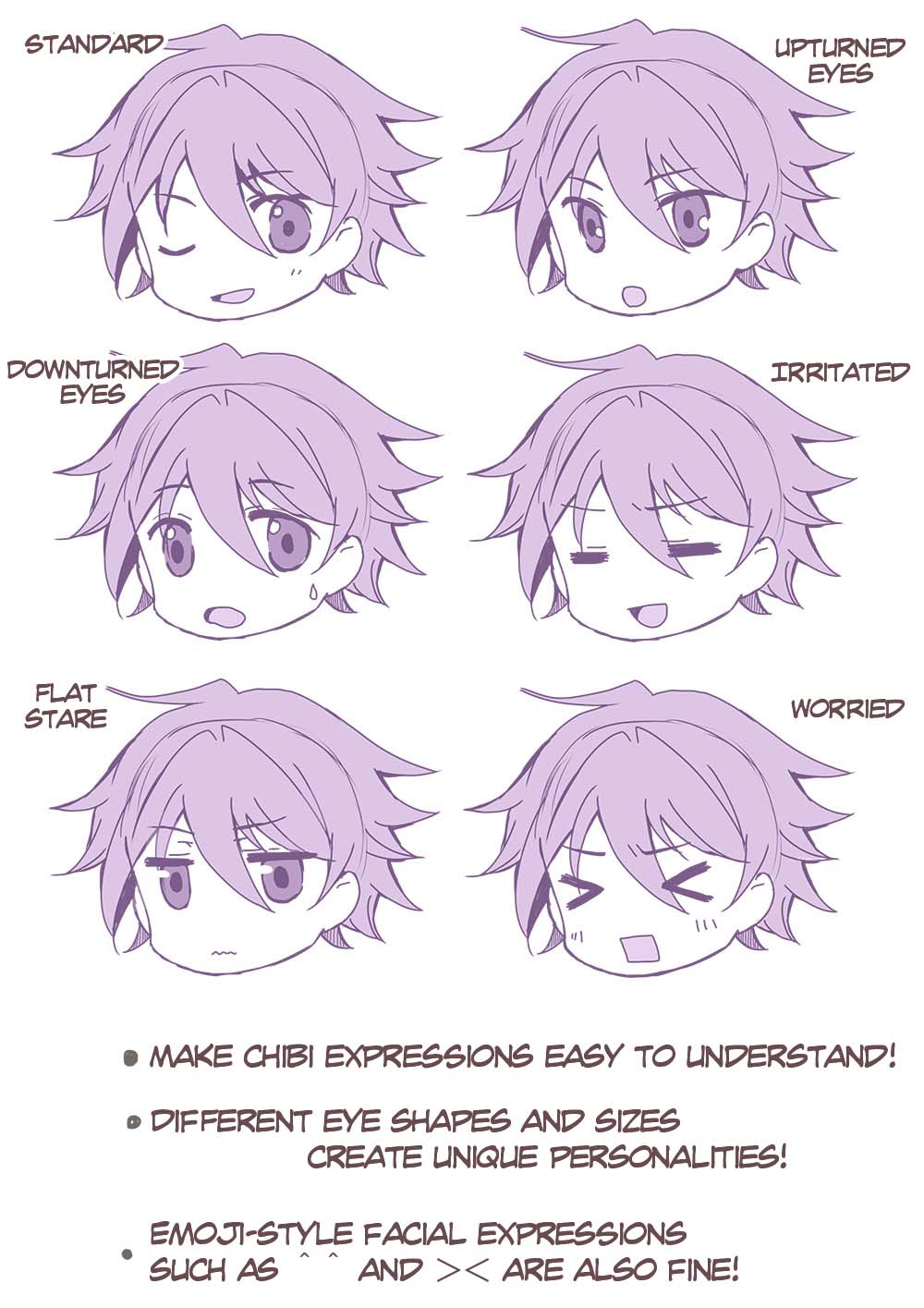
● Emotion comes from the eyes
Chibis have huge eyes that express their characteristics and feelings. Does the character have upturned or downturned eyes? Does the character have round eyes or thin eyes?
The eyes are the most important, as they can create a totally different effect with expressions.
Chibis can have exaggerated features for a comedic effect, so don’t be afraid to push their expressions to the extreme.
Since they are so tiny, you can bring out the childish aspects of the characters.
Drawing the Body
● Ignore the skeleton when drawing the body
When drawing a chibi body, focus on softness, and ignore the usual rules of bones and joints.
When I say “softness,” I mean a squishy and soft feeling like a stuffed animal. You don’t need to worry too much about the skeleton frame or joints.
Of course, knowing the basics of how the body works will affect the drawing, but you do not have to be strictly bound to these principles. Since the body is already too small to support the head, you can ignore some rules of physics when you draw. This freedom is one advantage of chibi characters.
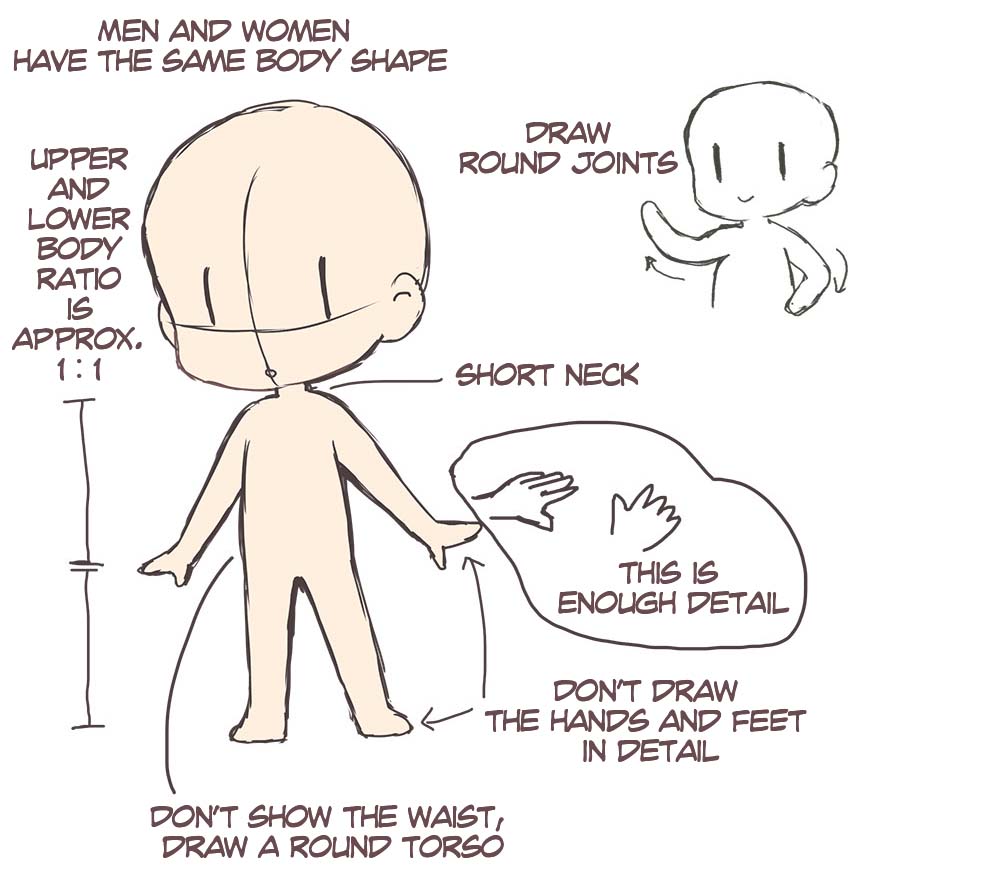
● Drawing the body
A 1:1 balance between the torso and legs will create a well-balanced body.
With that said, you don’t need to obey any specific rules for chibi characters!
A longer torso will make the chibi look cuter and more doll-like.
Longer legs create a more mature effect, even with the same head-to-body ratio.
Choose whichever proportions you prefer.
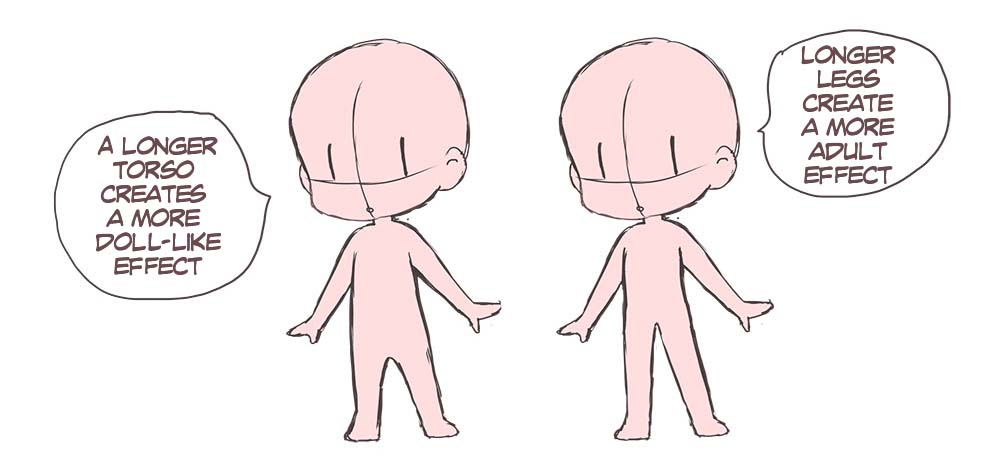
・ Neck
The neck can disappear with a two-head-tall character.
If you draw the neck, keep it short and thin.
You should omit any unneeded parts on a chibi character, so you don’t have to draw the neck.
However, make sure the head and body connect at the right position.
・ Shoulders
Drawing broad shoulders creates a more rugged effect and reduces the cuteness.
Sloping shoulders suit both male and female chibi characters.
・ Torso
On a normally-sized drawing, a woman might have a defined figure, but you can ignore those features for a chibi character.
If the character has some defining characteristic, you can draw that.
Draw a simple torso that appears round and soft.
The main element of chibi characters is cuteness. A detailed body shape would be too realistic, so they are typically drawn with a childlike body.
・Arms and legs
Slender limbs will make the character look too mature, so keep the arms and legs relatively thick, ignoring realism with the joints and muscles.
You can make the legs thinner towards the feet, or keep the thickness consistent.
You can decide whether or not to draw the fingers and toes, but the chibi can look a little odd with detailed fingers. I recommend dividing the hand into two shapes: the thumb and the four fingers. You can consider drawing the hands and fingers in more detail if the character is three heads tall.
Note: When drawing a three-head-tall body, you should define the shape more clearly than a two-head-tall body.
In particular, by drawing curves around the chest, waist, and hip, the character will look more mature than with a two-head-tall body.
Express more personality!
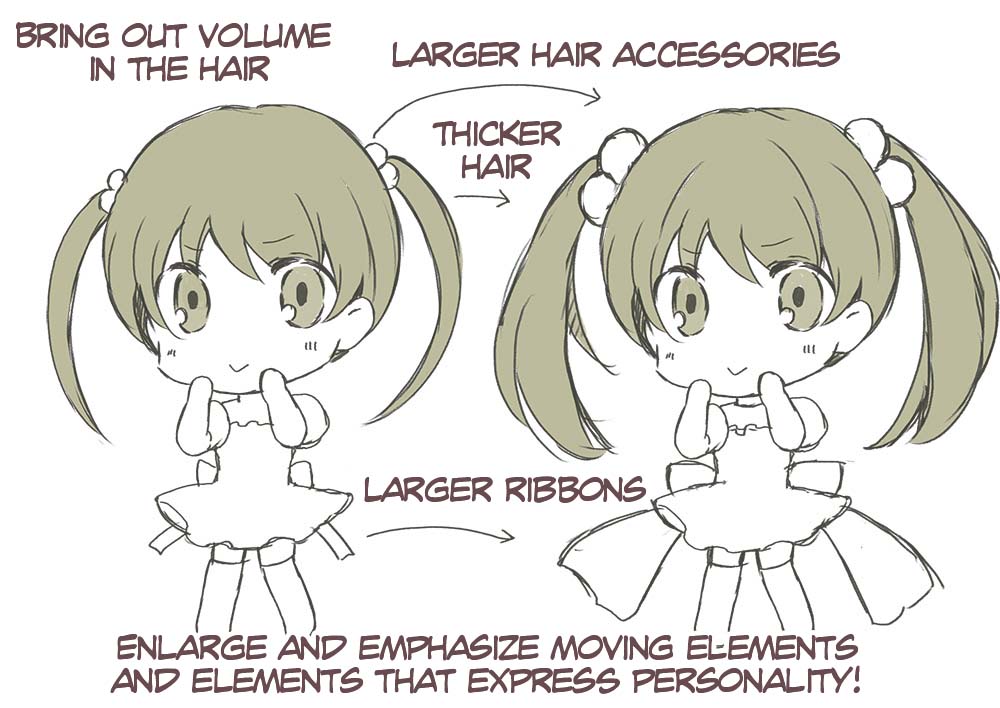
● Maximize and emphasis unique features
Now that you can draw a chibi, let’s focus on bringing out the character’s personality.
Mini characters have identical body shapes, so it can be hard to distinguish between them at a single glance. How can we differentiate between characters? The answer is, of course, exaggerate the character’s features!
For example, if the character wears glasses, draw them larger. If the character has long hair, make it even longer. The same applies to the clothes of the character.
In this way, you can clearly distinguish the different characters you draw.
Changing the hair is useful in many cases.
If you increase the amount of hair, make it resist gravity, or make the character’s hairstyle more unique, it will change the character’s appearance.
Did you enjoy my tutorial?
As I mentioned at the beginning, if you learn how to design a chibi character by yourself, you will be able to draw more characters with the same body shape. You can also apply the tips for drawing the face and the body to other chibi characters.
Based on the same body shape, you can differentiate between characters by drawing different hairstyles, eye shapes, and clothes.
And since chibi characters can ignore gravity, you can draw poses that are usually impossible.
Always prioritize the cuteness of the character over the realism of the pose.
BONUS: How to create accessories
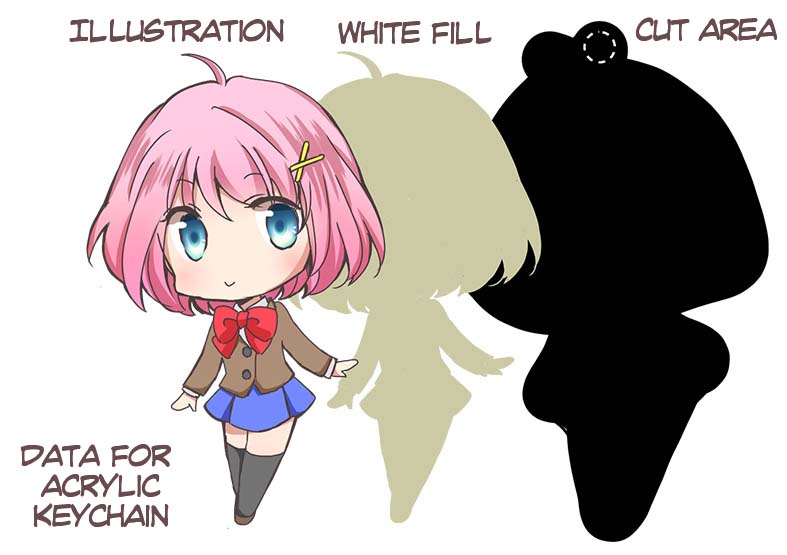
Creating a zine or a comic is pretty complex, so why not start with creating small items?
Today, I will explain how to prepare art for acrylic keychains, which are easy to make and look cute with chibi characters!
(You can make most other acrylic goods, such as acrylic stands, in the same way.)
An acrylic keychain usually requires three separate data, depending on the printing vendor template.
Open the template, and paste these images on separate layers, usually the following:
・Artwork
・White fill
・Cut area
Then, send the data to the printing vendor.
For the artwork, choose the data you want to use.
At the top, indicate where to place the hole for the keyring chain.
Make sure you don’t draw anything over the hole.
The white fill is the base color under the illustration.
Without this white base, the illustration will be printed directly on the transparent acrylic, which makes the colors appear translucent and hard to see.
To print your illustration as you created it, make sure to create a white fill layer.
It is easy to create this data – create a duplicate of the illustration layer and fill it with a solid color. The printing vendor will print this layer in white.
Because it sits under the illustration, the shape should be a silhouette of the artwork. If you want certain parts to appear transparent, you can remove the white fill on those parts.
Cut area shows where the acrylic board will be cut.
The layer can be purely black. Fill the area surrounding the illustration in black.
Avoid creating a complex cut border, as the keyring maker may not be able to cut it.
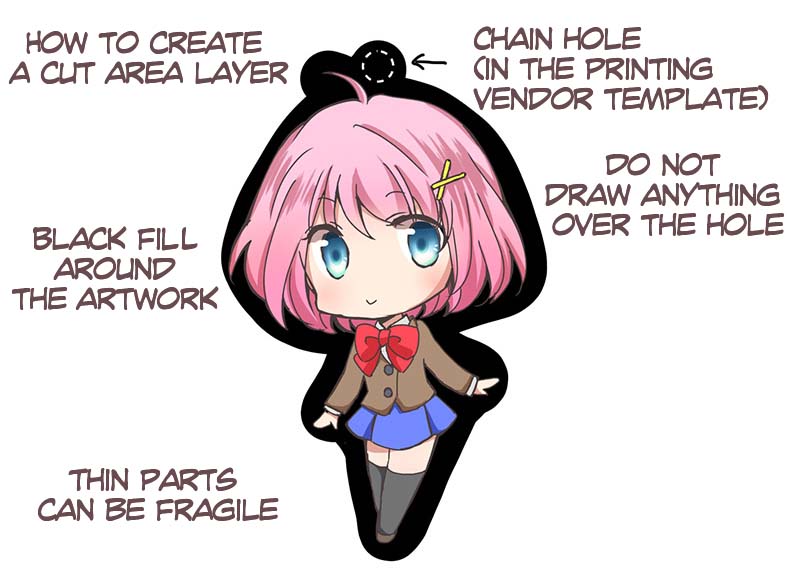
Once you know how to prepare data for an acrylic keychain, you can make other acrylic accessories in the same way!
Make sure you understand the size of each item.







